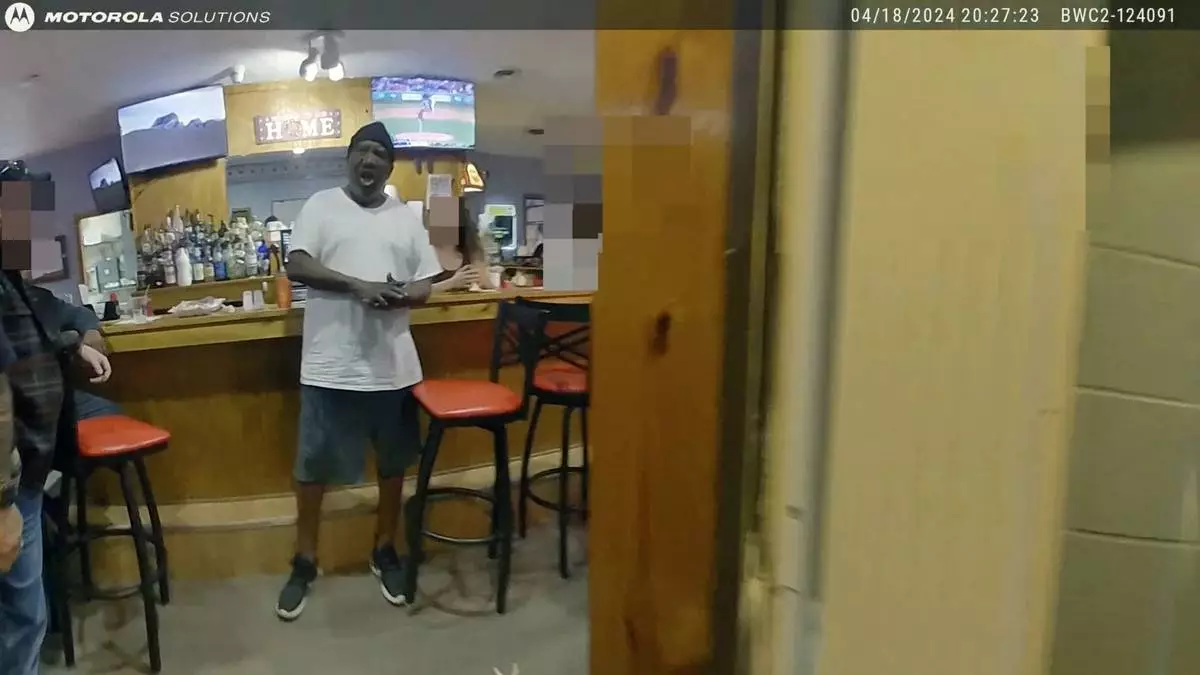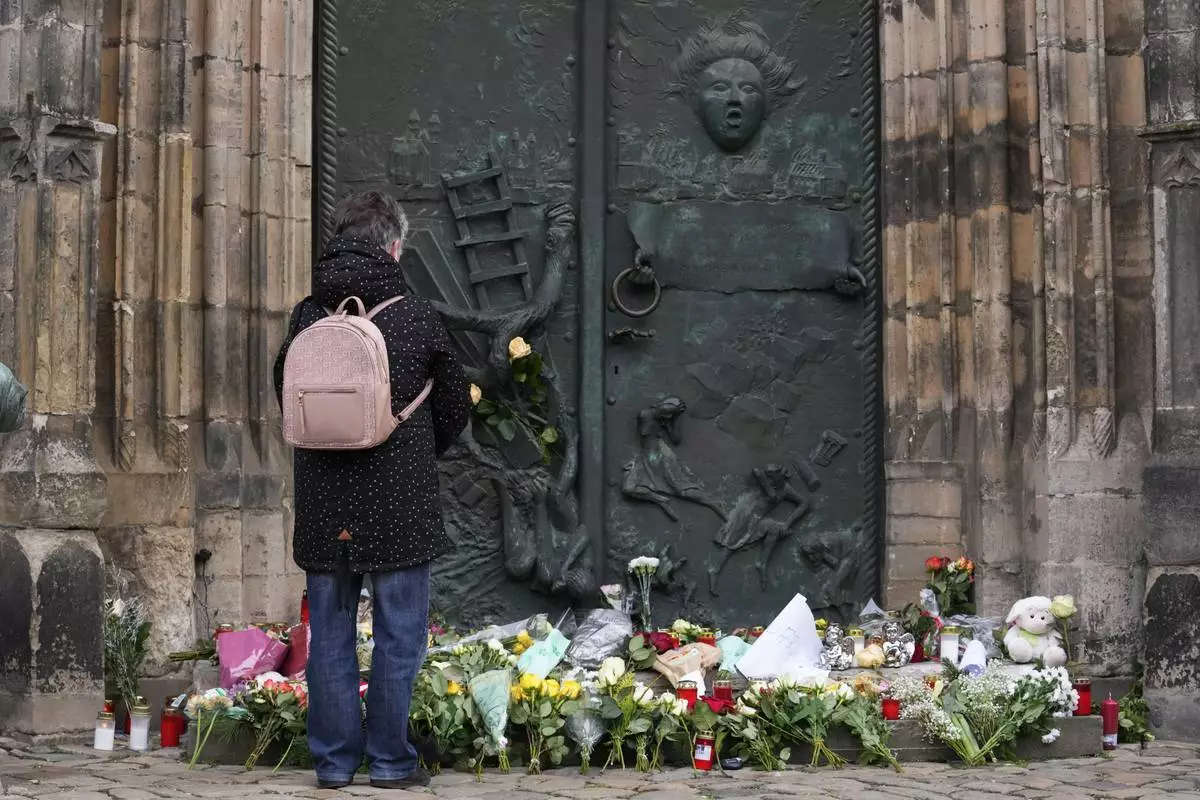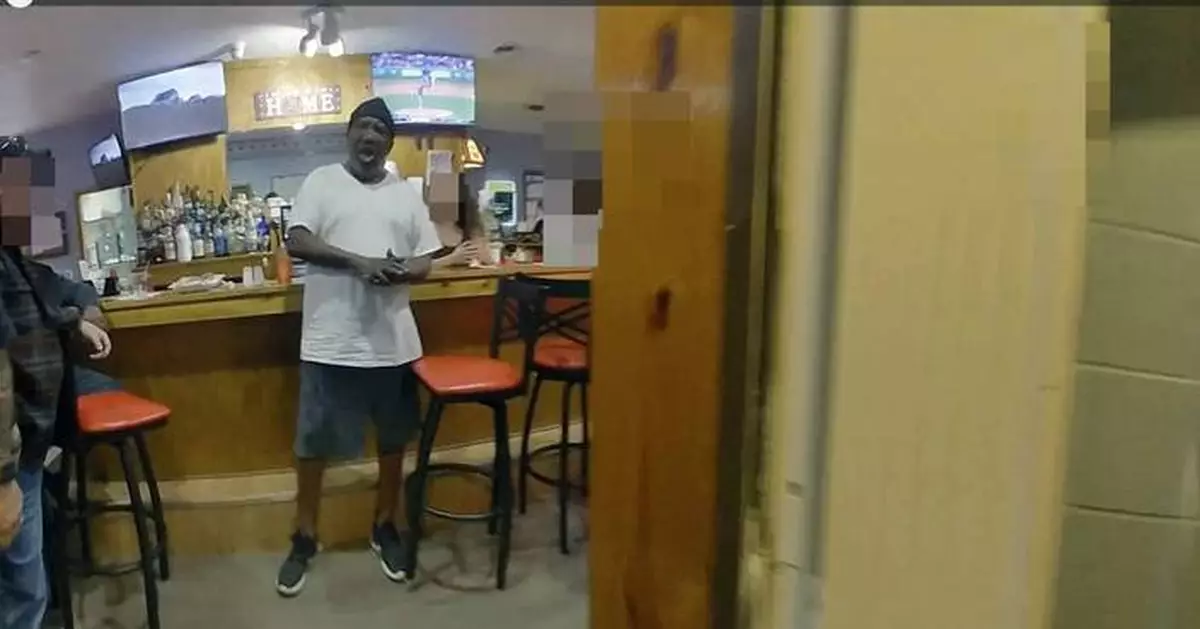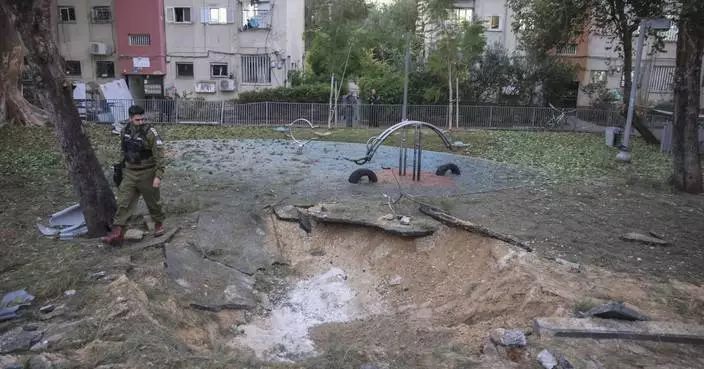CANTON, Ohio (AP) — The death of an Ohio man who died in police custody earlier this year has been ruled a homicide.
The Stark County Coroner’s Office issued its finding Monday on the death of Frank Tyson, a 53-year-old East Canton resident who died April 18 after he was handcuffed and left face down on the floor of a social club in Canton while telling officers he couldn’t breathe.
The preliminary autopsy report also listed a heart condition and cocaine and alcohol intoxication as contributing causes. The coroner’s office also stressed that its finding does not mean a crime was committed.
Bodycam video released by police showed Tyson resisted while being handcuffed and said repeatedly, “They’re trying to kill me” and “Call the sheriff,” as he was taken to the floor.
Tyson, who was Black, was taken into custody shortly after a vehicle crash that had severed a utility pole. Police body-camera footage showed that after a passing motorist directed officers to the bar, a woman opened the door and said: “Please get him out of here, now.”
Police restrained Tyson — including with a knee on his back — and he immediately told officers he could not breathe. Officers told Tyson he was fine, to calm down and to stop fighting as he was handcuffed face down with his legs crossed on the carpeted floor. Police were joking with bystanders and leafing through Tyson’s wallet before realizing he was in a medical crisis.
Five minutes after the body-camera footage recorded Tyson saying “I can’t breathe,” one officer asked another if Tyson had calmed down. The other replied, “He might be out.”
The two Canton officers involved, who are white, remain on paid administrative leave.
Tyson was released from state prison on April 6 after serving 24 years on a kidnapping and theft case and was almost immediately declared a post-release control supervision violator for failing to report to a parole officer, according to the Ohio Department of Rehabilitation and Correction.

FILE - This image, taken from Canton Police body camera video, shows 53-year-old Frank E. Tyson, shortly before he died being handcuffed by police, on April 18, 2024, in Canton, Ohio. (Canton Police Department via AP, File)
MAGDEBURG, Germany (AP) — Germany on Saturday was still in shock and struggling to understand the suspect behind the attack in the city of Magdeburg.
Identified by local media as 50-year-old Taleb A., a psychiatry and psychotherapy specialist, authorities said he has been living in Germany for two decades. He was arrested on site after plowing a black BMW into a Christmas market crowded with holiday shoppers Friday evening, killing at least five people and wounding about 200 others.
Prominent German terrorism expert Peter Neumann posted on X that he had yet to come across a suspect in an act of mass violence with that profile.
Taleb’s X account is filled with tweets and retweets focusing on anti-Islam themes and criticism of the religion while sharing congratulatory notes to Muslims who left the faith. He also described himself as a former Muslim.
He was critical of German authorities, saying they had failed to do enough to combat the “Islamism of Europe.”
He has also voiced support for the far-right and anti-immigrant Alternative for Germany (AfD) party.
Some described Taleb as an activist who helped Saudi women flee their homeland. Recently, he seemed focused on his theory that German authorities have been targeting Saudi asylum seekers.
Neumann, the terrorism expert, wrote: “After 25 years in this ‘business’ you think nothing could surprise you anymore. But a 50-year-old Saudi ex-Muslim who lives in East Germany, loves the AfD and wants to punish Germany for its tolerance towards Islamists — that really wasn’t on my radar."
On Saturday, German Interior Minister Nancy Faeser told reporters: “At this point, we can only say for sure that the perpetrator was evidently Islamophobic – we can confirm that. Everything else is a matter for further investigation and we have to wait.”
A German-based organization called Athiest Refugee Relief said the alleged attacker was not a part of the group and claimed that he made “numerous accusations and claims” against it and former board members, which it said were false.
“We distance ourselves from him in the strongest terms," the group said in a statement on its website, adding that members of Atheist Refugee Relief filed a criminal complaint against him in 2019 following “the most foul slander and verbal attacks."

An image taken from a video shows police officers arresting a suspect after car drove into a crowd at the Christmas market in Magdeburg, Germany, Friday Dec. 20, 2024. (TNN/DPA via AP)

A person stands by flowers and candles placed outside St. John's Church near a Christmas Market, where a car drove into a crowd on Friday evening, in Magdeburg, Germany, Saturday, Dec. 21, 2024. (AP Photo/Ebrahim Noroozi)












